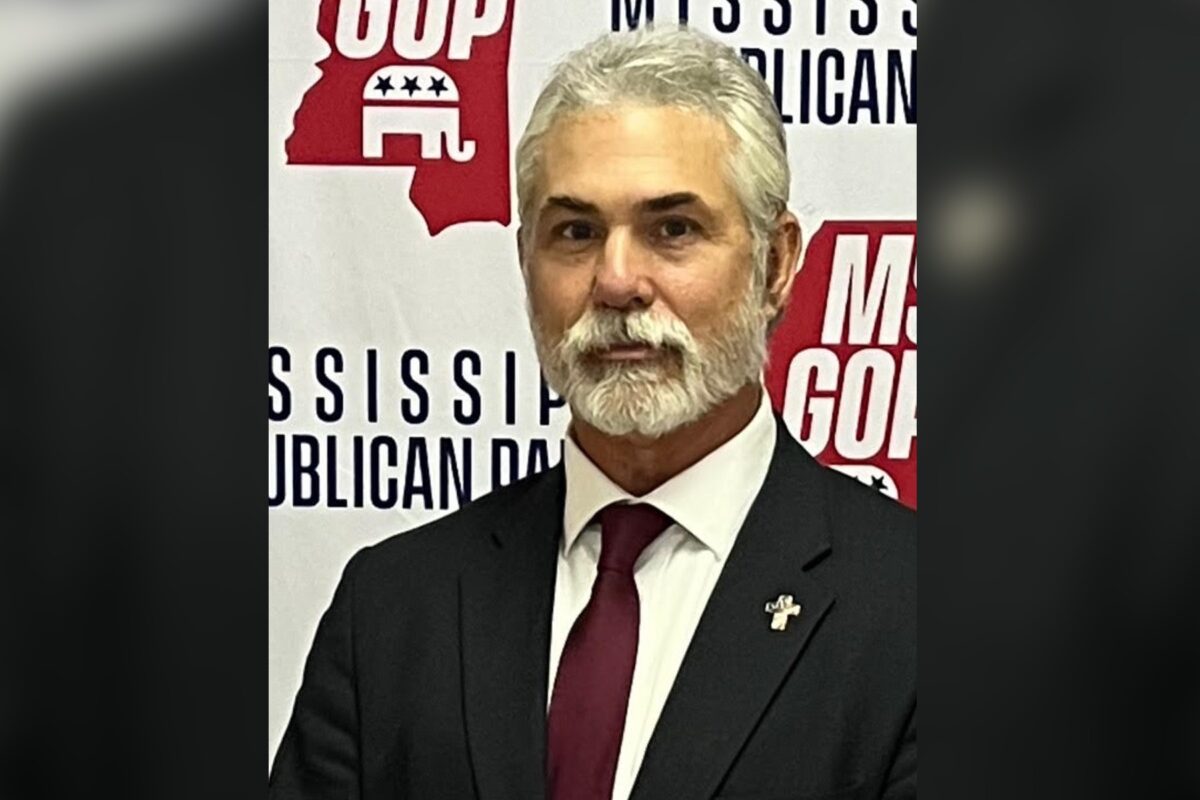Fired Over Ivermectin, ER Doctor Fights for Medical Freedom
John Witcher, a physician and former ER medical director, had his contract terminated in December 2021 when he attempted to use ivermectin for three of his hospitalized COVID-19 patients.
A month earlier, Mary Talley Bowden, an ear, nose, and throat (ENT) doctor, posted on Twitter that she supported ivermectin use for treating COVID-19 and that vaccine mandates were “wrong.” Bowden, who’d recently joined the medical staff at Houston Methodist, was suspended.
Not long after, Yusuf Saleeby, a medical doctor in South Carolina with more than 30 years of experience, received a letter from South Carolina’s medical board detailing that it had received a complaint that he prescribed ivermectin to one of his patients. The board stated that it was opening an investigation.
Beth Chambers, an attorney in Colorado, said she represents several doctors and health care providers facing investigation by the Colorado Medical Board for prescribing ivermectin.

These stories of pushback that healthcare workers faced when they didn’t follow the federal government treatment protocols for COVID-19 are common.
“We’re in a situation right now where if you don’t follow the government protocols, that’s what can happen,” Witcher told The Epoch Times.
He’s now dedicated to the restoration of the doctor-patient relationship.
He founded the medical freedom advocacy group MS Against Mandates prior to being terminated. The group, which includes Dr. Peter McCullough, Dr. Jeff Howard, and Dr. Carol Hill is putting pressure on lawmakers to put forward legislation that protects doctors’ and nurses’ freedom of speech.
“I’m up here right now [at the Mississippi state capitol] talking to different senators and representatives and trying to get a freedom of speech bill passed so that doctors can come forward,” Witcher said.
He’s also pursuing legislation to allow doctors to speak out regarding vaccine concerns—something he said healthcare professionals in Mississippi are currently afraid to do for fear of losing their medical licenses or jobs.
Witcher isn’t alone in his fight. Across the United States, state legislatures are taking up the issue of doctor-patient relationships and freedom of speech.
Witcher’s Story
On Dec. 3, 2021, Witcher said he was scheduled to work as the attending doctor for three shifts at Baptist Memorial Hospital—a 30-bed, critical access hospital in rural Yazoo, Mississippi—and three patients had just been admitted with COVID-19.
“Normally, I would travel back and forth to my house,” Witcher, who lived an hour away from the hospital, explained. But for his three shifts, Witcher said he decided to stay in town and try a protocol that he felt had significant promise.
Witcher said he’d been researching Front Line COVID-19 Critical Care Alliance (FLCCC) protocols, and was especially interested in trying ivermectin after he talked to McCullough and saw the reports coming out on ivermectin’s potential.
Witcher was particularly keen to try early treatment options to avoid COVID-19 patients from being placed on a ventilator, which he said led to an 80 percent chance of dying.
He said his first shift started typically. He checked in with his patients and, as is standard, used the computer to take the patients off the remdesivir protocol so he could try ivermectin.
“All this is computerized. The pharmacist is watching. He can see the computer system,” Witcher said. “And at some point, shortly after I started changing protocols, he came to me and said, ‘What are you doing, Dr. Witcher? This is the protocol we’ve set up.’
“I showed him the scientific data on the protocols that I wanted to use and said, ‘I’ve been looking at this for quite some time now. I just feel like this is the best for the patient.’”

Witcher said the pharmacist immediately “ran” to the hospital administrator, and the process of questioning and explaining was repeated. The administrator then elevated the protocol change to the Chief Medical Officer of the Baptist Hospital system, who lived in Memphis, Tennessee, while Witcher continued his rounds.
“Because we didn’t have ivermectin in the hospital, I had to call the local pharmacist to get the medication,” Witcher said. “I had it with me. And so, as I was going down the hall to discuss ivermectin with the three patients, I got a phone call from my direct boss, who’s in another city.
“I wasn’t an employee of the hospital. I was an independent contractor working through a staffing group contracted to the hospital. So that staffing group was my direct boss, [and] he called me and said basically the higher-ups are done with you. They don’t want you to come back.”
Following the phone call, Witcher was removed from the hospital’s computer system, and his patients were put back on the standard protocol of remdesivir.
“The hospital basically broke the patient-doctor relationship. They cut me out of the computer system, so I could not get back in and see how the patients were. And I was not allowed to come back to the hospital to see the patients, even though I still to this day have hospital privileges,” Witcher said.
Two weeks later, Witcher received a certified letter from Baptist Hospital saying his contract was terminated “without cause.” That they appreciated his work and efforts, but he wasn’t welcome back.
“My contract very clearly states that they can’t interfere with the patient-doctor relationship. They have no say-so in how I practice medicine with my patients. That’s totally reliant on me as a medical practitioner.”
Changing State Laws
According to Witcher, the hospital was able to take the approach it did because, in Mississippi, there are no state laws that effectively protect the doctor-patient relationship and medical freedom.
He added that right now in Mississippi if someone speaks out against the Center for Disease Control and Prevention’s (CDC) protocols, they could lose their license.
Witcher said MS Against Mandates has a dozen board members, most of whom are physicians, as well as members from around the state.
“Physicians, nurse practitioners, nurses—they want to speak up,” Witcher said.
“They’re seeing vaccine-injured patients, but they’re afraid to [say anything] because they’re afraid they’ll lose their license. And so that’s the first thing I’m doing. I’m trying to get that law introduced.”
So far, Witcher said he’s received “some positive responses” from state legislators but added that politics is “like a big old chess game,” and lawmakers in Mississippi aren’t yet ready to reveal their moves.

Other state legislatures, however, have already laid out their game plans.
In Oregon, Republican state senator Dennis Linthicum introduced Senate Bill 716 on Jan. 9. If passed, it’ll allow healthcare practitioners to prescribe or dispense drugs for “off-label indication” and prohibit medical boards and other professional regulatory boards from disciplining healthcare providers for off-label drug use. As of this writing, the bill is in committee.
In Texas, state senator Angela Paxton, a Republican, introduced Senate Bill 426 to the legislature on Jan. 12. If passed, the “Right to Treat Act” would, among other protections, safeguard the doctor-patient relationship by prohibiting state interference with off-label drug use and prohibiting disciplinary actions against physicians’ licenses for dispensing or prescribing off-label drugs. It was referred to the Health and Human Services Committee on Feb. 15.
Conversely, three Democrat representatives in New Jersey introduced A5070 on Jan. 20. If passed, any healthcare professional who “engages in the dissemination of misinformation or disinformation” will be subject to disciplinary action. As of this writing, the bill is in committee.
New Jersey’s bill is similar to California’s Assembly Bill 2098, signed into law on Sep. 30, 2022, which allows California’s state medical board to sanction or revoke a healthcare provider’s license if they give medical advice that contradicts what the CDC puts forward. The implementation of AB 2098 is currently on hold after a group of doctors sued Democratic California Gov. Gavin Newsom over the law, alleging it violates their right to free speech.
Other bills like House Bill 98, introduced to North Carolina’s General Assembly on Feb. 13, and House Bill 266, introduced to Georgia’s General Assembly on Feb. 7, are medical freedom acts that would protect against vaccine mandates and other measures the state’s Department of Public Health previously thought necessary to prevent the spread of COVID-19.
Medical Tyranny and the Future
According to Witcher, the CDC-prescribed treatments and government mandates related to COVID-19 were never about health.
“It’s medical tyranny. That’s what’s happening. But you could take off the medical,” Witcher said. “I mean, this is tyranny. It’s not freedom. This whole COVID thing was never about our health, okay?
“I’m not saying COVID’s not real. It is real. But it was a lot of fear-mongering to scare people to take their freedom away. So, it was never about healthcare. It was always about control.”
Additionally, Witcher said there’s always been an element of government control and coercion in healthcare centered around funding, but “doctors got totally pushed out of the decision-making process” with COVID-19.
“In this case, [the Food and Drug Administration] approved remdesivir to treat COVID. Even though it was not fully FDA-approved—it was authorized,” he said.

Hospitals then used remdesivir as the preferred treatment for COVID-19 because it was federally authorized and came with reimbursement, he said. “That’s where the hospital administrators come in. You know, they look at ‘where do I get reimbursed the most? Which medicine?’” he said.
“Doctors aren’t independent. Even though I don’t work for the government, I will say I’m a government doctor because the government has total control over what I do.
“That’s why I’m here trying to get this bill so that here in the state of Mississippi, doctors can have freedom of speech, which you would interpret as freedom of practice, too.
“That’s really where the problem is. Our state medical board was taken over by the federal board. It’s one big government organization that’s over the doctors. And so, I mean, we were in socialized medicine before COVID came in—we’re in communized medicine now. You basically do what you’re told, or you can get fired. Silenced.”
Witcher announced in January his intention to run for governor in Mississippi.
This article has been archived for your research. The original version from Epoch Times can be found here.



